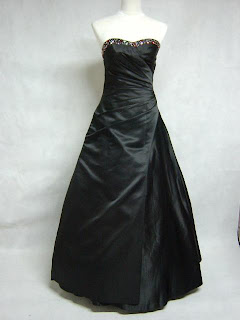This was the least of our worries.
Our animated self-proclaimed celebrity tour guide Milosz had gotten carried away in České Budějovice and our detour there ran an hour longer than expected. Our destination was Český Krumlov, a UNESCO Heritage Site and town near the Austrian border, and with the driver going along at the rate of a golf cart, we would barely have time to glimpse the town before our night at the opera.
Through the bus window, I saw a giant nest with storks. The spindly-legged creatures looked more ragged and brown-tinged than cartoon storks. One poked its head out of the nest, then thought better of it and tucked back into hiding. We passed rows of farmland. I saw a little girl rubbing her eyes and crying on a porch with her mother next to a massive field of wheat.
The forests thickened as we neared Český Krumlov. We parked in a lot outside of town as the cobblestoned streets are too narrow for buses.
We climbed out of the bus and into a fairy tale town. Narrow winding streets, wooden bridges, a sprawling castle, and stone buildings stacked close together under stormy skies.

Milosz led a tour through town punctuated with his usual gory details. He liked to add things about notable historical figures such as “and then he died of syphilis so he had to be cremated.”
In the middle of the tour, it started to rain. We were crossing a narrow bridge, staying close to the side so cars could pass. First a few drops and then the circling clouds gathered over the town center and the showers started. Did I mention that the opera we were headed to was outside?
We took cover under an arch with two tourist shops. Robin Hemley, the only faculty member on the trip, talked about how he was looking for a fanny pack. Who in their right mind would wear a fanny pack? I wondered if I should stage an intervention. Tell him that fanny packs went out of style with jams and parachute pants in 1991. Actually, they may never have been in style. Only grandparents wore fanny packs or people with pocket protectors. People who wore sensible orthopedic shoes.
Luckily, I didn’t have to stage an intervention as it turned out he was seeking the most offensive tourist garb on purpose as part of a new non-fiction project on pickpockets. Phew!
As soon as the rain lightened, Milosz ushered us back to the hotel to change for the opera. What do you wear to an opera when it’s pouring rain? I thought of Hana at the New York Metropolitan Opera surrounded by surly Americans in dripping raincoats.
Milosz had a bee in his bonnet about getting to the opera on time. He perched at the head of the bus practically tapping his foot until we arrived at the parking lot.
The rain came back again, following us like the rain cloud over Linus. At the gates to the opera, staff handed out blankets and ponchos. There we were: surly Americans in dripping raincoats at the opera.

When the show began, all the rain and misery disappeared. The scenes were set in the woods and grassland around the audience, and the audience, like a giant amusement park ride, swiveled 360 degrees in the course of the show. The show was Dvorak’s Rusalka. The woman playing Rusalka put the D in Diva. Here she is, hugging a tree:

Mostly the opera consisted of the Diva sashayed across a black plastic faux-lake pining after the unappealing steroid-popping alto who wore a puffy blouse. Luckily, Dvorak had added elements of the Little Mermaid tale to give a context to this spectacle.
The setting and effects worked like magic. Instead of black plastic, I saw a lake, and instead of women in floaty dresses, I saw sea nymphs. I didn’t want the seats to stop moving. Very late, when the rain had stopped and the Diva bowed at least twenty times, we were set loose back into the fairy tale of Český Krumlov.
Back at the hotel, we changed into warmer clothes (in other words, I put on every item of clothing I’d brought), and headed out in search of Český Krumlov night life. This consisted of one bar with a rotating multi-colored disco light playing bad music while no one danced. Everyone clung to the bar, including one man who was slumped over the bar, possibly dead, though no one seemed to notice or care. We found a wooden table and ordered “betons” until the music drove us out.
The next morning, I visited Egon Schiele’s regular hangout

…and ate buckwheat cereal with honey at a restaurant that served traditional medieval fare.


I also spotted Mao’s twin lounging by the river, though he was decidedly more sedate.

On the way back to the hotel, I saw people getting ready to go kayaking, dwarfed by the town buildings:

Milosz again was in a hurry to sweep us off to the next syphilis-riddled hotspot in Czech history so we piled back into the bus. I spotted another silver can in the bus driver’s hand, but I was too full of the land of Rusalka, honey mead, Egon Schiele and thatched roofs to care.














































